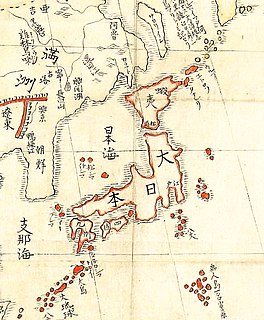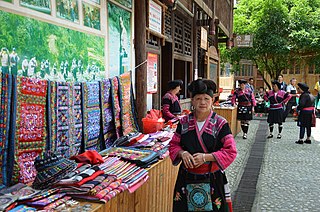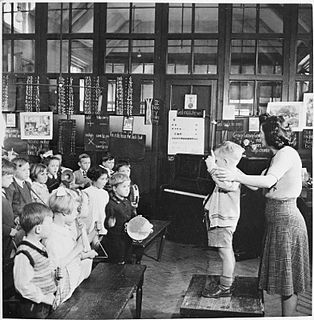Related Research Articles

Sexual harassment is a type of harassment involving the use of explicit or implicit sexual overtones, including the unwelcome and inappropriate promise of rewards in exchange for sexual favors. Sexual harassment includes a range of actions from verbal transgressions to sexual abuse or assault. Harassment can occur in many different social settings such as the workplace, the home, school, churches, etc. Harassers or victims may be of any gender.

Sex segregation is the physical, legal, or cultural separation of people according to their biological sex. Sex segregation can refer simply to the physical and spatial separation by sex without any connotation of illegal discrimination. In other circumstances, sex segregation can be controversial. Depending on the circumstances, it can be a violation of capabilities and human rights and can create economic inefficiencies; on the other hand, some supporters argue that it is central to certain religious laws and social and cultural histories and traditions.
Equal pay for equal work is the concept of labour rights that individuals in the same workplace be given equal pay. It is most commonly used in the context of sexual discrimination, in relation to the gender pay gap. Equal pay relates to the full range of payments and benefits, including basic pay, non-salary payments, bonuses and allowances. Some countries have moved faster than others in addressing equal pay.

The Toronto District School Board (TDSB), formerly known as English-language Public District School Board No. 12 prior to 1999, is the English-language public-secular school board for Toronto, Ontario, Canada. The minority public-secular francophone, public-separate anglophone, and public-separate francophone communities of Toronto also have their own publicly funded school boards and schools that operate in the same area, but which are independent of the TDSB. Its headquarters are in the district of North York.

A pink-collar worker is someone working in the care-oriented career field or in fields historically considered to be women’s work. This may include jobs in the beauty industry, nursing, social work, teaching, secretarial work, or child care. While these jobs may also be filled by men, they have historically been female-dominated and may pay significantly less than white-collar or blue-collar jobs.
Employment discrimination is a form of discrimination based on race, gender, religion, national origin, physical or mental disability, age, sexual orientation, and gender identity by employers. Earnings differentials or occupational differentiation—where differences in pay come from differences in qualifications or responsibilities—should not be confused with employment discrimination. Discrimination can be intended and involve disparate treatment of a group or be unintended, yet create disparate impact for a group.

Feminism in Japan began with women's rights movements that date back to antiquity. The movement started to gain momentum after Western thinking was brought into Japan during the Meiji Restoration in 1868. Japanese feminism differs from Western feminism in the sense that less emphasis is on individual autonomy.
The National Association of Schoolmasters (NAS) was a trade union representing male schoolteachers in the United Kingdom.

Since the industrial revolution, participation of women in the workforce outside of the home has increased in industrialized nations, with particularly large growth seen in the 20th century. Largely seen as a boon for industrial society, women in the workforce contribute to a higher national economic output as measure in GDP as well as decreasing labor costs by increasing the labor supply in a society.

Occupational sexism is discrimination based on a person's sex that occurs in a place of employment.

The Elementary Teachers' Federation of Ontario is a labour union representing all public elementary school teachers, occasional teachers and some Designated Early Childhood Educators (DECEs) in the Canadian province of Ontario. The union has 76 local chapters in the province, and over 81,000 members. The union was founded on July 1, 1998, by the merger of the Federation of Women Teachers' Associations of Ontario (FWTAO) and the Ontario Public School Teachers' Federation (OPSTF).
Discrimination comprises "base or the basis of class or category without regard to individual merit, especially to show prejudice on the basis of ethnicity, gender, or a similar social factor". This term is used to highlight the difference in treatment between members of different groups when one group is intentionally singled out and treated worse, or not given the same opportunities. Attitudes toward minorities have been marked by discrimination historically in the United States. Many forms of discrimination have come to be recognized in U.S. society, on the basis of national origin, race, gender and sex in particular.

Women's societal roles in Brazil have been heavily impacted by the patriarchal traditions of Iberian culture, which holds women subordinate to men in familial and community relationships. The Iberian Peninsula, which is made up of Spain, Portugal and Andorra, has traditionally been the cultural and military frontier between Christianity and Islam, developing a strong tradition for military conquest and male dominance. Patriarchal traditions were readily transferred from the Iberian Peninsula to Latin America through the encomienda system that fostered economic dependence among women and indigenous peoples in Brazil. As the largest Roman Catholic nation in the world, religion has also had a significant impact on the perception of women in Brazil, though over the past century the Brazilian government has increasingly broken with the Catholic Church in regard to issues related to reproductive rights.

In 2014, China ranked 37th out of 187 countries on the United Nations Development Programme's Gender Inequality Index (GII). Among the GII components, China's maternal mortality ratio was 32 out of 100,000 live births. In education 58.7 percent of women age 25 and older had completed secondary education, while the counterpart statistic for men was 71.9 percent. Women's labour power participation rate was 63.9 percent, and women held 23.6 percent of seats in the National People's Congress.However, in 2019, China ranked 106 out of the 153 countries surveyed this year.

The International Association of Women Police (IAWP) is a global organization for women in criminal justice professions. Its mission is to "strengthen, unite and raise the profile of women in criminal justice internationally."
Discrimination in education is the act of discriminating against people belonging to certain categories in enjoying full right to education. It is considered a violation of human rights. Education discrimination can be on the basis of ethnicity, nationality, age, gender, race, economic condition, disability and religion.
Labor feminism was a women’s movement in the United States that emerged in the 1920s, focused on gaining rights in the workplace and unions. Labor feminists advocated for protectionist legislation and special benefits for women, a variant of social feminism. They helped pass state laws regulating working conditions for women, expanded women's participation in unions, and organized to oppose the Equal Rights Amendment.

Women in music education describes the role of women musicians, conductors, teachers and educational administrators in music education at the elementary school and secondary education levels. While music critics argued in the 1880s that "...women lacked the innate creativity to compose good music" due to "biological predisposition", later, it was accepted that women would have a role in music education, and they became involved in this field "...to such a degree that women dominated music education during the later half of the 19th century and well into the 20th century." "Traditional accounts of the history of music education [in the US] have often neglected the contributions of women, because these texts have emphasized bands and the top leaders in hierarchical music organizations." When looking beyond these bandleaders and top leaders, women had many music education roles in the "...home, community, churches, public schools, and teacher-training institutions" and "...as writers, patrons, and through their volunteer work in organizations."
Hermine Tobolowsky was a United States activist for the Equal Rights Amendment. She is also known as the "Mother of the Texas Equal Rights Amendment."
Cynthia Fuchs Epstein is an American sociologist and emeritus distinguished professor of sociology at the Graduate Center of the City University of New York. Fuchs Epstein served as president of the American Sociological Association in 2006.
References
- ↑ Barbara Richter (June 2007). "It's Elementary: A brief history of Ontario's teachers and their federations" (PDF). EFTO Voice. Archived from the original (PDF) on 2010-12-29. Retrieved 2008-08-18.
- 1 2 3 Marshall, Catherine (1997). Feminist Critical Policy Analysis. Routledge. ISBN 9780750706346.
- ↑ Khayatt, Madiha Didi (1992). Lesbian Teachers: An Invisible Presence. SUNY press. ISBN 9780791411711.
- ↑ Reshef, Yonatan; Sandra Rastin (2003). Unions in the Time of Revolution . University of Toronto Press. pp. 88–89. ISBN 9780802087539.
Federation of Women Teachers' Associations of Ontario.
- ↑ "ETFO Awards Honourary[sic] Life Memberships". News release. CNW Group Ltd. 2008-08-14. Retrieved 2008-08-23.